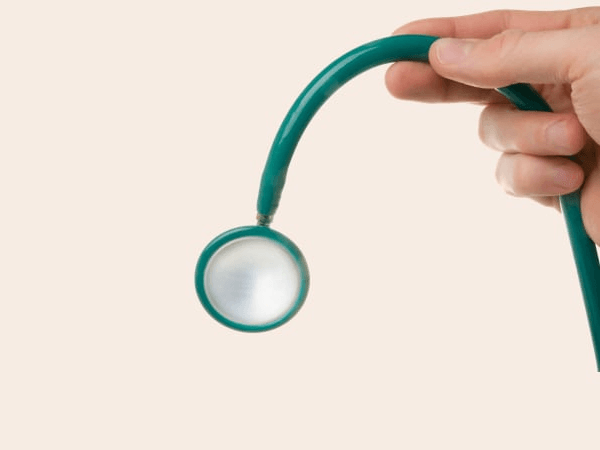Key Takeaways:
- Erectile Dysfunction (ED) is a common condition with various misconceptions surrounding it.
- Understanding the truth about ED can help break stigmas and guide individuals toward seeking proper help.
- Several treatment options are available, and lifestyle modifications can also be crucial in management.
Understanding Erectile Dysfunction: Not Just an Age Issue
Erectile Dysfunction, often perceived as a matter pertaining solely to aging, is increasingly being recognized as a condition that affects men across all adult age groups. The myth that ED is a problem exclusive to older men can deter younger individuals from seeking help when needed. According to statistics, approximately 30 million men in the United States are impacted by this condition, highlighting its widespread nature. Younger men often experience ED due to lifestyle factors, stress, or underlying medical conditions rather than age alone.
Myth: ED is a Reflection of Masculinity
Societal narratives have long linked erectile function to male virility and self-worth, creating an unjust stigma around those experiencing ED. This myth perpetuates the idea that a man’s ability to maintain an erection is inherently tied to his masculinity, contributing to feelings of inadequacy and shame. In reality, ED is a medical condition that does not define personal or sexual worth. It can be caused by a spectrum of factors unrelated to one’s identity or masculine qualities. Consulting with a specialized ED clinic can be pivotal in identifying the specific causes and exploring potential solutions tailored to individual needs.
Exploring the Real Causes of ED
The reasons behind erectile dysfunction are diverse and intricate, involving both physical and psychological factors. Physical contributors can range from cardiovascular issues, diabetes, and hormonal imbalances to neurological disorders. Meanwhile, psychological factors such as stress, anxiety, and depression also play significant roles. Understanding the root cause is vital for effective treatment; treatments may only offer temporary relief without addressing the underlying issue. Take the example of a man experiencing ED due to high blood pressure; addressing hypertension not only aids his erectile function but also improves overall health. This holistic understanding supports the shift from symptom management to root cause resolution. Understanding the psychological impact of ED is crucial in dismantling these stereotypes, as it provides insights into how this condition affects mental health and self-esteem beyond the bedroom.
The Psychological Factor: It’s More Than Physical
While physical health often takes the front seat in discussions about ED, the psychological aspects are equally compelling and sometimes even more impactful. Studies have shown that stress, anxiety, and depression can exacerbate or even initiate ED symptoms. Individuals must recognize the interplay between mental and physical health. Psychological well-being significantly influences bodily functions, including sexual health. Seeking help from mental health professionals, along with traditional medical treatment, often yields better results. Resources like psychological health and its effects can offer a deeper understanding and practical solutions to manage these influences.
Lifestyle Choices: Impact on Erectile Health
Lifestyle is a formidable factor when it comes to erectile health. A sedentary lifestyle, consumption of unhealthy foods, smoking, and excessive alcohol use can markedly impact a man’s ability to achieve and maintain erections. Conversely, age-appropriate physical exercise and a balanced diet can significantly improve erectile function. The Mediterranean diet, known for its heart-healthy components—rich in fruits, vegetables, nuts, and whole grains—has been associated with better vascular health, supporting robust erectile function. Developing a lifestyle that prioritizes health can aid in managing ED, improve overall wellness, and reduce the risk of cardiovascular diseases.
Effective Treatment Options for ED
The available treatments for erectile dysfunction are varied and are constantly changing with advances in medicine. Although medications like Viagra and Cialis are familiar, they are not the exclusive choices offered. Vacuum erection devices, penile injections, and surgical implants are also viable choices, particularly for those who have not found success with traditional methods. Moreover, alternative therapies such as shockwave therapy and platelet-rich plasma injections are gaining attention as modern approaches to managing ED. Individuals must seek guidance from healthcare professionals to determine the best course of action, as treatment effectiveness can vary significantly from person to person based on numerous factors.
Importance of Open Communication with Healthcare Providers
Open dialogue with healthcare providers is a cornerstone of effective ED treatment. Many men hesitate to discuss ED symptoms due to embarrassment or fear of judgment, yet such conversations are critical for accurate diagnosis and effective management. Being candid with medical professionals allows them to tailor treatment plans that address both the symptoms and underlying causes of ED. Furthermore, understanding what to expect from treatments and having an opportunity to discuss potential side effects can ease anxiety and bolster confidence in the chosen treatment path. Patients should feel encouraged to ask questions and discuss all available options during medical consultations.
Busting Myths for Better Health Outcomes
Challenging and correcting misconceptions about erectile dysfunction is vital for improving health outcomes. Stigmas and false beliefs hinder individuals from seeking help and impact the effectiveness of treatment and patient satisfaction. By fostering informed discussions and shifting perspectives, men can be better equipped to address ED and enhance their overall well-being. The evolving understanding of ED highlights the importance of debunking myths and promoting a supportive, educated approach to men’s health. As societal perceptions shift and more men feel empowered to seek help without fear of judgment, we can pave the way for healthier, more fulfilling lives.

